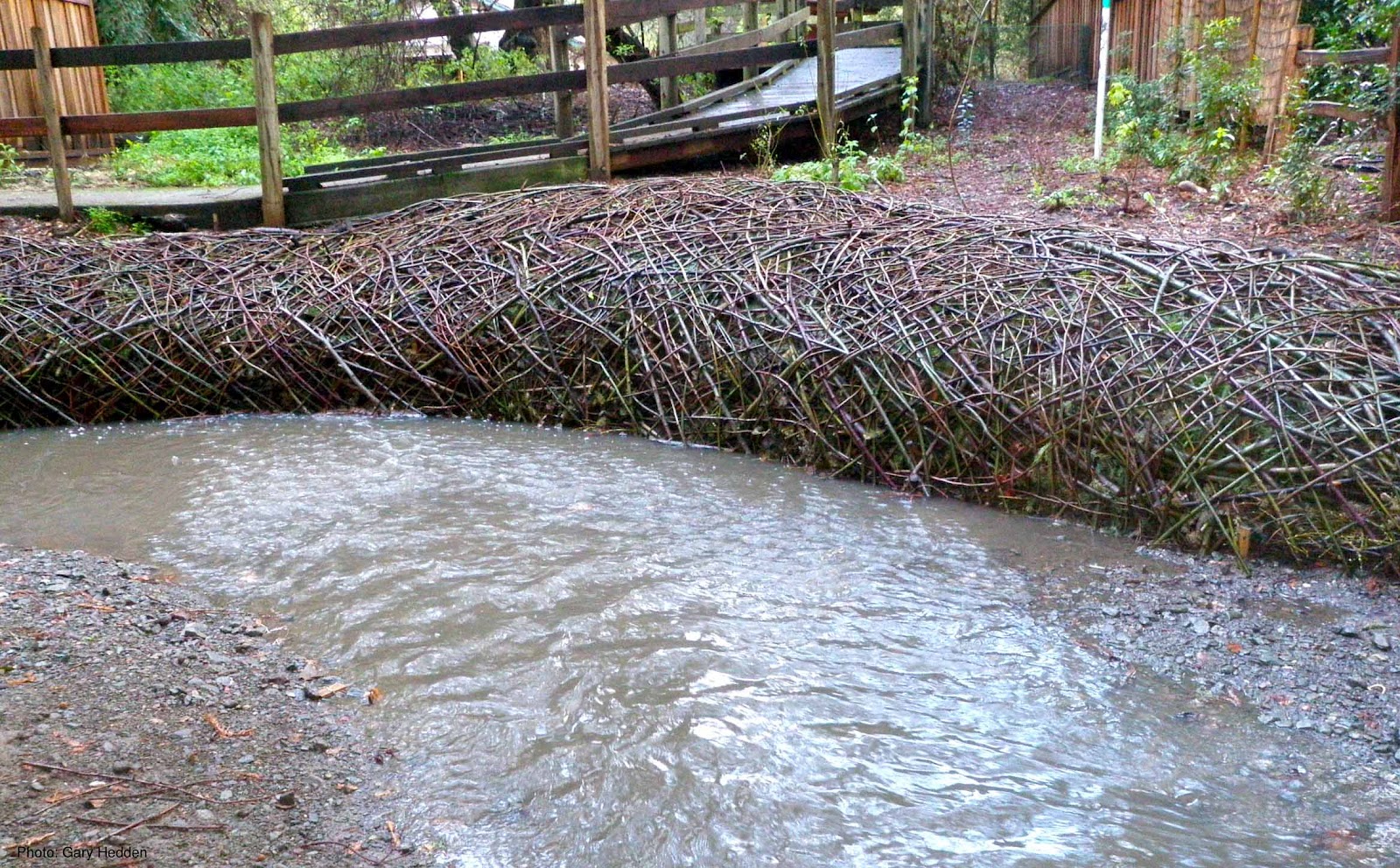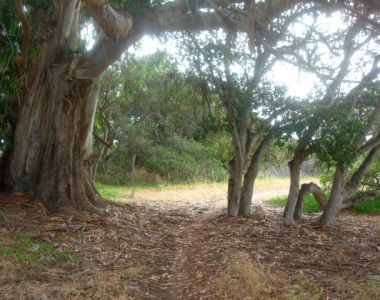Farmscape plans
Central Coast Wilds designs agricultural windbreaks, hedgerows and waterways utilizing native plant species to:
- create beneficial insect and wildlife habitat in and around the farm
- reduce water and wind erosion of the soil, and
- add income to the farm by reducing dependence on agrochemical inputs.
Hedgerow & Windbreak Installation
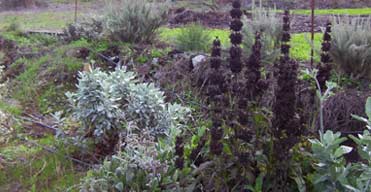 |
| Native Plant Hedgerow, Garroutte Farms Watsonville, California |
Hedgerows and windbreaks can have multiple functions: they can serve as habitat for beneficial insects, pollinators and other wildlife; provide erosion protection and weed control; stabilize waterways; serve as windbreaks; reduce non-point source water pollution and groundwater pollution; protect from drift; increase biodiversity; and provide an aesthetic resource. Diversity in hedgerow species assures a range of attributes, such as multiple kinds of insects and wildlife attracted, positive effects to soil and water resources, and success of individual plants under site-specific climatic and other environmental conditions. Over the past twenty years, hedgerows, windbreaks and other habitat plantings are increasingly being used in modern agricultural systems. The bottom line to planting hedgerows and windbreaks is that, while they are a separate farming operation, they can bring diversity and beauty to the farm.
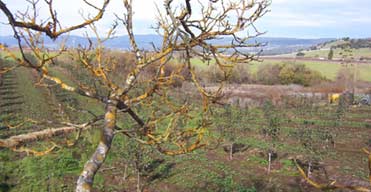 |
| Gizdich Ranch Watsonville, California |
Vegetated Buffer Strip Installation
Agriculture buffer strips utilizing native plants have applications in;
- filtration of irrigation water runoff to protect adjacent riparian and wetland areas; and
- buffering adjacent properties from agricultural dusts and noise.
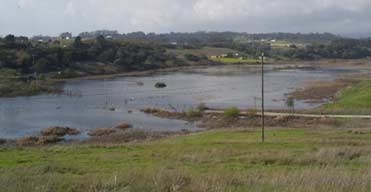 |
| Wetland Buffer Highground Organic Farm Watsonville, California |
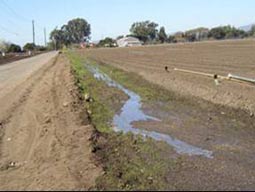 |
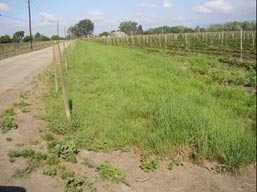 |
| Before | After |
